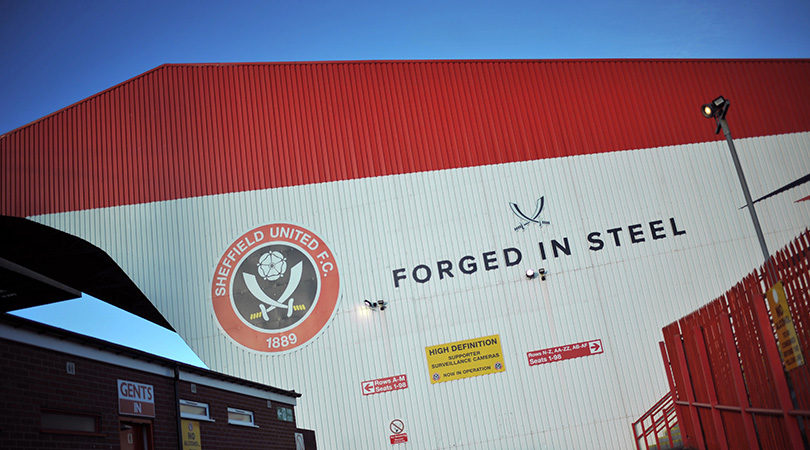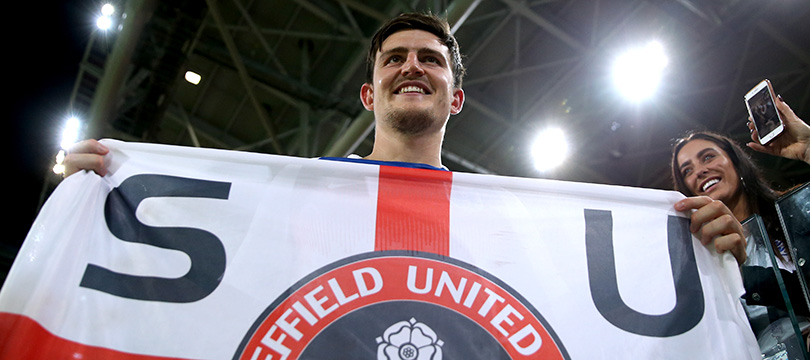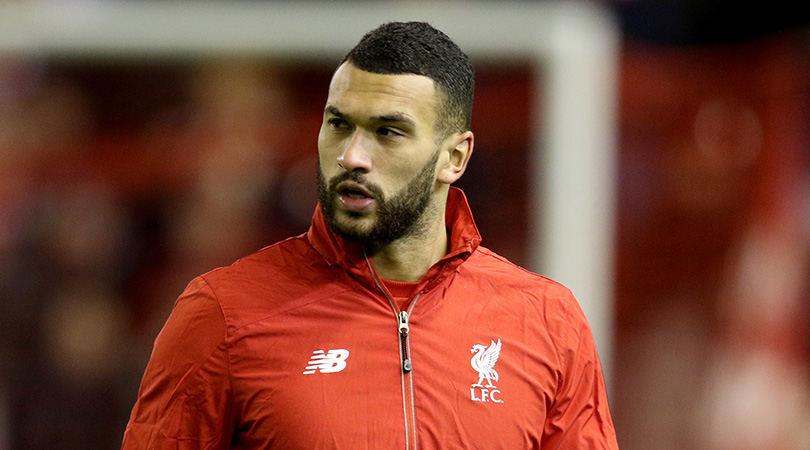Sheffield United: excellent odd ones out in the Championship’s promotion race
The Blades are operating on a different financial plane to the rest of their promotion rivals, but aren't letting that affect their quest to make the big time, writes Daniel Storey

Sheffield United are a club that deals in low-key surprises. When they were relegated to League One in 2010/11, they had finished eighth the previous season but burned through three managers from December to May. When most expected them to return quickly, the Blades endured six straight seasons of third-tier football.
If their return to a division packed with sleeping giants looked tough, they finished in the top half last season. With 18 league games remaining of 2018/19 they sit fourth, four points from the Championship’s summit.
For those of a certain age, Sheffield United will always be a big club. But one season of Premier League football since 1994 tells its own story: in the last 40 years, Bramall Lane has hosted more third-tier league games than top tier. Hope certainly lives here, but expectation shouldn’t.
Sense and sensibility
The Championship top half is a domain where economic sense is often abandoned in favour of gambling on reaching the Promised Land.
In Deloitte’s latest review of football finances, they calculated that 99% of the revenue generated by its 24 clubs was spent on wages. Since the beginning of 2016/17, five current Championship clubs have spent more than £10m on a single player. The EFL’s broadcasting deal is worth approximately 3% of the Premier League’s.
SEE ALSO Financial Fair Play vs fairy tales: the Football League’s conundrum
Get FourFourTwo Newsletter
The best features, fun and footballing quizzes, straight to your inbox every week.
Sheffield United too, aren’t shy of speculating to accumulate. The McCabe family, who still reportedly control the club despite falling out with co-owner Prince Abdullah of Saudi Arabia, repeatedly funded promotion back to Championship as the Blades lost money each season. The club broke its transfer record to sign central defender John Egan for £4 million in the summer.

But if Sheffield United feel a little out of place in the Championship’s automatic promotion race, they are. Their hopes of glory are pinned not on individual signings, but a manager who could not be more different to Frank Lampard, Tony Pulis, Daniel Farke or Marcelo Bielsa.
By his own admission, Chris Wilder lives for Sheffield United. He was born in Stocksbridge, a small town within the city’s boundaries which gained fame for playing host to the start of the Jamie Vardy fairytale. Wilder watched Sheffield United as a boy and played for them over two spells as a man. He has a tattoo of the club’s crest.
But this job was not bestowed upon him through footballing nepotism. Wilder began his managerial career at Alfreton Town, was at Halifax Town during their liquidation and gained promotion to the Football League with Oxford United. Having won the League Two title with Northampton Town, he was appointed at Bramall Lane and immediately led United to the League One title at the first time of asking. In his last two full seasons in the bottom two tiers, Wilder’s team took 199 points.
“Not getting paid at Halifax, putting petrol in my car and getting it declined, and having to sell my house about three times,” said Wilder in October. “No, you could say I’ve not had the experiences of other managers.” He has earned his stripes.

In and out

Kyle Walker, Kyle Naughton > Tottenham (2009)
Matt Lowton > Aston Villa (2012)
Harry Maguire > Hull (2014)
Che Adams > Birmingham (2016)
Dominic Calvert-Lewin > Everton (2016)
David Brooks > Bournemouth (2018)
One of the immediate aspects of Sheffield United’s success that sticks out is the extraordinary turnover of players. Since Wilder arrived in June 2016, 31 have arrived on permanent deals and 13 more on loan.
It is a deliberate strategy from Wilder to offer most of them shorter deals than you might expect. This is a manager attempting to sculpt a squad that he believes has bought into his vision. Almost all of the permanent signings cost less than £1m. David Brooks was sold to Bournemouth for £11.5m to part-fund the investment.
But Wilder’s list includes some remarkable bargains. Leon Clarke joined from Bury for £150,000 and scored 18 league goals last season. Oliver Norwood has now made his loan move from Brighton permanent for £2m and is one of the best midfielders in the Championship. David McGoldrick was signed on a free transfer from Ipswich.
Enda Stevens and Mark Duffy were other free deals, from Portsmouth and Birmingham respectively; John Lundstram cost £500,00 from Oxford United; Richard Stearman cost £800,000 from Fulham. That entire list cost less than £3.5m. When Sheffield United played Swansea at the weekend, their opponents had a £4.5m signing on the bench.
Lessons learned
There is no huge secret to Wilder’s methods. He demands total commitment and hard work from his players, as ‘old school’ as it is possible to conceive at the highest level.
The desire for hard running and energy caused burnout last season, when Sheffield United were second in mid-November but took 30 points from their last 29 league matches. If there are suspicions that the same may occur in 2018/19, defender Stearman has been particularly vocal that the squad is far more able to deal with the rigours of a long season. Their FA Cup humbling at home to Barnet could be a blessing – it’s worth noting that eight Sheffield United players have started 25 or more of their 28 league games. That could take its toll.
But a focus on commitment needn’t mean agricultural football. Sheffield United play a 3-4-1-2 formation that relies upon their wing-backs overlapping and getting high upfield. They have one of the best shot conversion rates in the league, evidence of a team that tries to create chances as close to goal as possible. Both McGoldrick and Billy Sharp have reached double figures for league goals. The three central defenders and on-loan Manchester United goalkeeper Dean Henderson make up the division’s second-best defence behind Pulis’s Middlesbrough.
The Championship is a wild frontier. The season is hard, the finances make you wince and the average length of a manager’s tenure has fluctuated between 313 and 427 days over the last four seasons. It sometimes feels like the graveyard of long-termism.
Among that noise, Sheffield United believe they are achieving by doing things slightly differently. If this is a club that flies under the radar in the Championship’s promotion race, their manager wouldn’t have it any other way. Underestimate the power of their unity at your peril.

